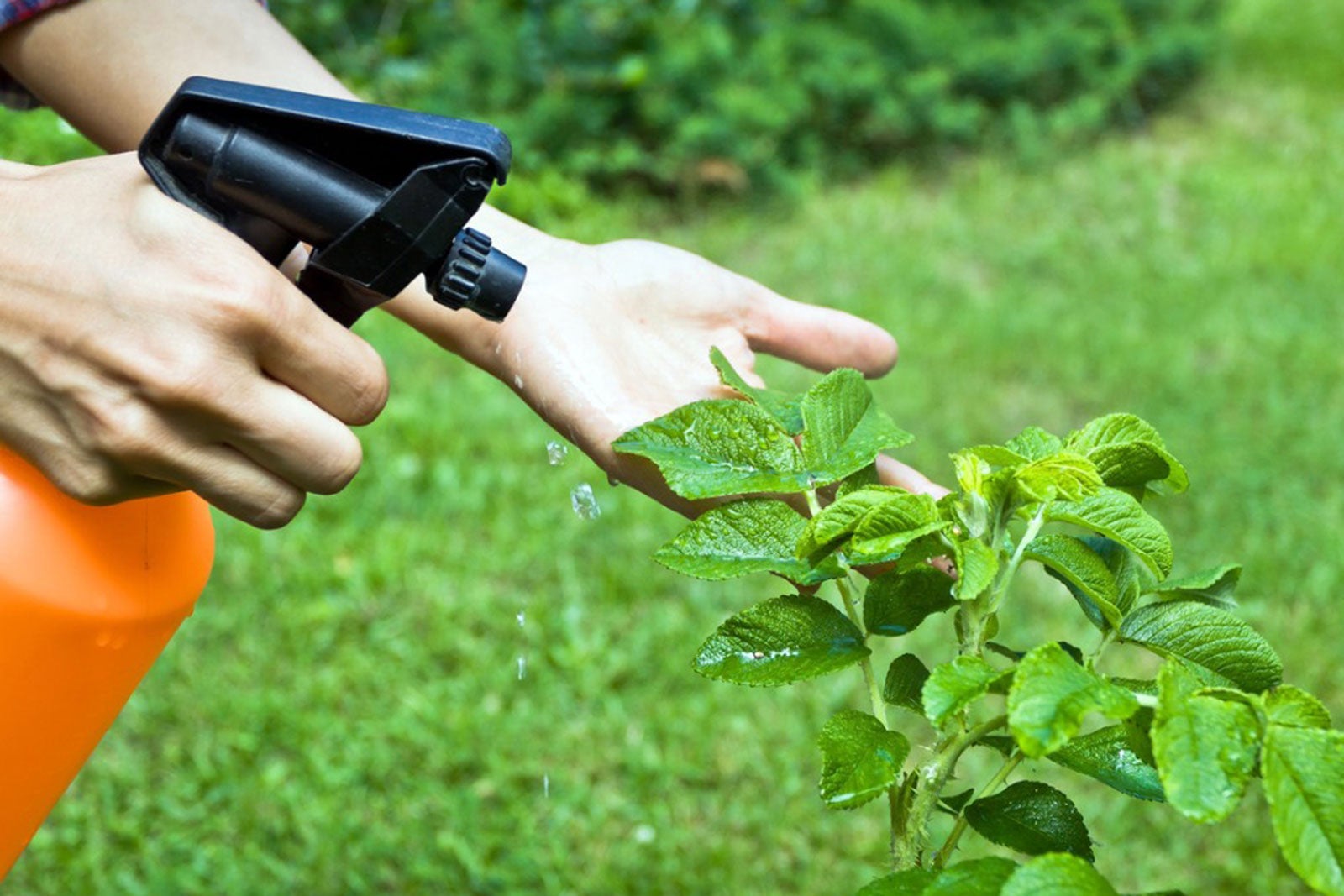How And When To Use Permethrin: Applying Permethrin In The Garden

If you’ve had problems with garden pests, then you’ve probably heard of permethrin, but what is permethrin exactly? Permethrin is usually used for pests in the garden but may also be used as an insect repellent on clothing and tents. Confused on when and how to use permethrin? Read on to learn about permethrin in the garden.
What is Permethrin?
Permethrin is a synthetic broad-spectrum insecticide classified as one of the oldest organic insecticides. While it is manmade, it resembles naturally occurring chemicals called pyrethroids that are naturally found in chrysanthemums, which have insecticidal properties.
Permethrin kills many different types of insects by paralyzing the nervous system. It works when ingested or through direct contact and kills adults, eggs, and larvae. It lasts up to 12 weeks post application.
When to Use Permethrin
Permethrin may be used on a number of pests on veggies, fruits, nuts, ornamentals, mushrooms, potatoes, and cereal crops in greenhouses, home gardens, and even for termite control. Keep in mind, however, that permethrin does kill bees and fish. Don’t use permethrin in the garden when bees are active or if near a body of water.
Drifting spray can also harm small animals, so be sure to use permethrin for pests on a calm, non-windy day. Wait 24 hours before harvesting after using permethrin in the garden and remember to wash your produce thoroughly prior to use.
How to Use Permethrin
Only use permethrin when you have an insect problem and only on recommended plants. Permethrin is available under many trade names in various incarnations. Always read the manufacturer’s instructions regarding application and safety before use.
Permethrin is more commonly available as spray, dust, emulsion concentrate, and wettable powder formulations. General instructions for spray products are to spray on a calm day and apply to all areas of the plant thoroughly, including the underside of the leaves. Again, refer to the manufacturer’s instructions for frequency of application.
Gardening tips, videos, info and more delivered right to your inbox!
Sign up for the Gardening Know How newsletter today and receive a free copy of our e-book "How to Grow Delicious Tomatoes".
Permethrin can irritate eyes and skin so wear goggles, long pants, and a long-sleeved shirt when using in the garden. Do not dump this insecticide in a body of water or on soil near water.
Note: Any recommendations pertaining to the use of chemicals are for informational purposes only. Specific brand names or commercial products or services do not imply endorsement. Chemical control should only be used as a last resort, as organic approaches are safer and more environmentally friendly.

Amy Grant has been gardening for 30 years and writing for 15. A professional chef and caterer, Amy's area of expertise is culinary gardening.
-
 Looking For Plants To Give You The Soft And Fuzzies? Try These 5 Fuzzy Leaf Plant Options
Looking For Plants To Give You The Soft And Fuzzies? Try These 5 Fuzzy Leaf Plant OptionsLovers of texture, drama, silver foliage and tactile plants will adore these special sensory garden additions. These fuzzy leaf plant options will leave you all aglow
By Susan Albert
-
 Get Ready For A Summer Of Hummers! Grow These Full Sun Hummingbird Plants and Flowers
Get Ready For A Summer Of Hummers! Grow These Full Sun Hummingbird Plants and FlowersIf you’re lucky enough to enjoy a sunny backyard, make sure you are maxing out on your pollinator opportunities and grow these full sun hummingbird plants and flowers
By Tonya Barnett